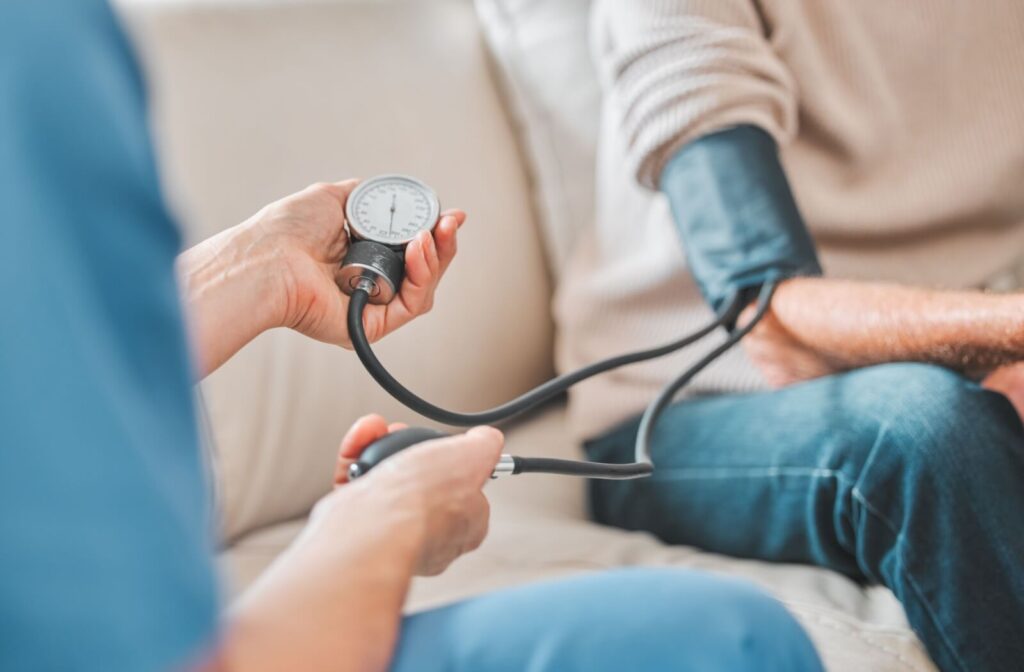Considering a loved one’s safety is always a top priority, especially when helping them choose the right level of care. It’s natural to wonder how our senior living community handles unexpected situations, from a sudden power outage to a severe weather event. You want the peace of mind that comes from knowing there’s a solid plan in place.
Senior living communities prepare for emergencies by creating comprehensive, customized plans that cover communication, supplies, and specific procedures, all supported by a well-trained and compassionate team.
Key Takeaways
- Emergency plans are tailored to address potential local risks, like weather events or power outages.
- Clear communication systems are set up to keep residents and their families informed.
- Team members receive regular training and drills to ensure they are ready to respond effectively.
- Families can be partners in preparedness by staying informed and asking questions.
Understanding Risks & Creating a Plan
Peace of mind comes from knowing your loved one is in a safe and supportive environment. A key part of providing that support in an assisted living community is having a well-thought-out emergency plan. The first step is to understand the types of events that could happen.
Identifying Potential Events
Each senior living community assesses its unique situation to prepare for various scenarios. This often includes planning for challenges that are specific to the area. Common considerations include:
- Weather-related events
- Unexpected power outages
- Widespread health situations
Building a Customized Response Strategy
After looking at potential events, the community develops a detailed response plan. This plan acts as a guide for team members to follow. It includes clear steps designed to support the well-being of every resident, including those in memory care or receiving respite care.
Key Elements of an Emergency Plan
A comprehensive plan covers all the essential details, from communication to necessary supplies. It’s a roadmap that helps everyone stay calm and safe in the event of an unexpected occurrence. These plans are designed to be thorough and easy to follow.
A Clear Communication System
Keeping everyone informed is a high priority. The communication plan outlines how the community will share updates with residents, families, and team members. Methods may include:
- A designated phone line for updates
- Text message or email alerts
- Regular check-ins from team members
Detailed Evacuation & Shelter Protocols
Every plan includes specific instructions for either sheltering in place or evacuating. These protocols take into account the mobility and health needs of each resident. Safe routes are mapped out, and assistance is provided to make sure everyone can move safely.
Management of Supplies & Resources
Being prepared means having the right supplies on hand. Communities maintain a stock of essential items to support residents for several days if needed. These resources typically include:
- A supply of non-perishable food and clean water
- First-aid kits and necessary medical supplies
- Backup power sources, like generators

The Role of Team Members in an Emergency
A plan is only as good as the people who put it into action. That’s why team members are so crucial to emergency preparedness in any senior living setting. Their training and dedication make all the difference, and we look for these qualities in everyone who joins us.
Ongoing Training & Drills
Team members receive regular training and participate in practice drills. These drills simulate different types of emergencies, from fire alarms to weather events. This practice helps everyone know what to do and respond quickly and effectively.
Defined Roles & Responsibilities
During an emergency, every team member has a specific job. The plan assigns responsibilities so that all tasks are covered. This organized approach helps things run smoothly, from assisting residents to managing supplies and communicating with families.
How You Can Be a Partner in Preparedness
As a family member, you also play a crucial role in your loved one’s safety. Collaborating with the assisted living community can create an even stronger support system. Your involvement is always welcome and appreciated.
Stay Informed & Provide Information
When you discuss senior living options, be sure to ask about the community’s emergency procedures and communication methods. It’s also helpful to ensure the community has your most up-to-date contact information. This way, you can receive essential updates promptly.
Consider a Personal Emergency Kit
You should prepare a small emergency kit for your loved one. This could include extra personal items that bring comfort. A list of medications and contact information for family members is also a great addition.
A Focus on Resident Well-Being In Times of Stress and Ease
In any senior living community, the well-being of residents is the focus of every day, from engaging in social activities to thoughtful emergency planning. Thorough emergency planning is a large part of that commitment. These plans are regularly reviewed and updated to ensure they remain current and effective.
Knowing that a community has a solid plan in place can offer comfort and reassurance. It shows a dedication to creating a secure and nurturing environment for every person who lives there. This focus helps everyone feel valued and respected.At Bentley Commons at Lynchburg, we are dedicated to fostering a safe, supportive, and compassionate environment for everyone in our community. We invite you to see our commitment to care for yourself. Contact us today to schedule a personal tour and learn more about the lifestyle we offer.



